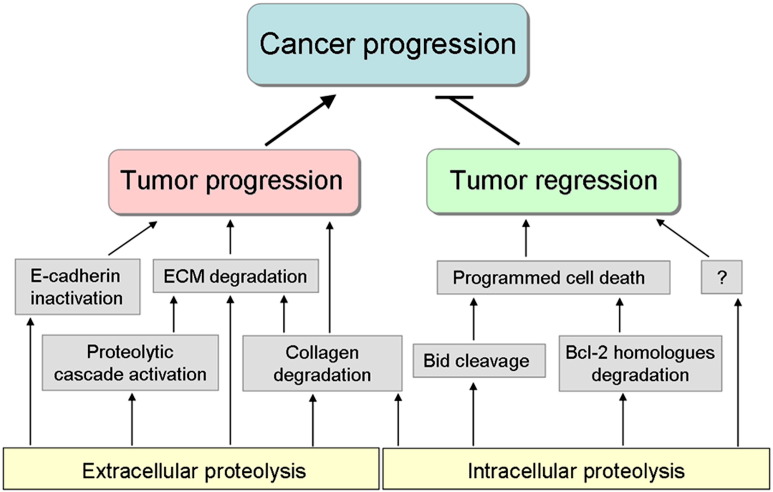Fig. 6.
Mechanisms of the cysteine cathepsins involvement in cancer progression. Extracellular cysteine cathepsins promote tumor progression by initiating a proteolytic cascade that results in the activation of a urokinase-type plasminogen activator (uPA), matrix metalloproteinases (MMPs) and plasminogen. Collectively, active proteases, including cysteine cathepsins themselves, can degrade all of the components of the extracellular matrix, promoting tumor progression and metastasis. The degradation of cell-adhesion proteins (e.g., E-cadherin) would additionally increase the disseminative ability of tumor cells. Alternatively, translocated into the cytosol cysteine cathepsins are shown to act as initiator proteases in lysosome-mediated cell death through the degradation of antiapoptotic Bcl-2 family members and the proteolytic activation of Bid, engaging the mitochondrial pathway of apoptosis.

